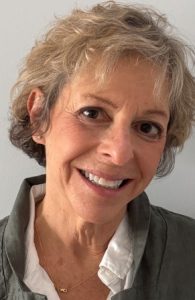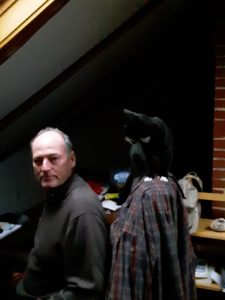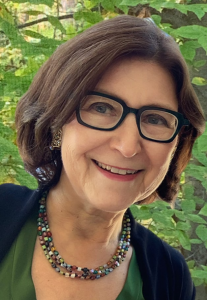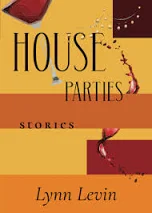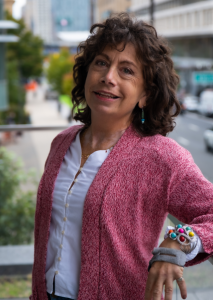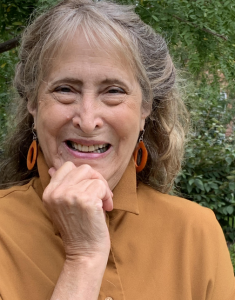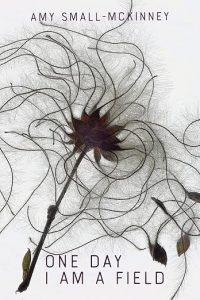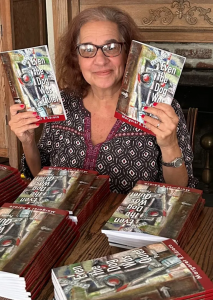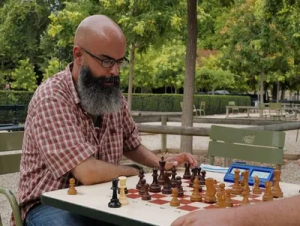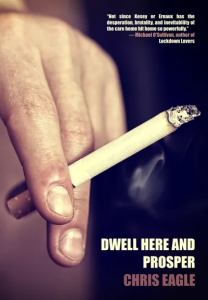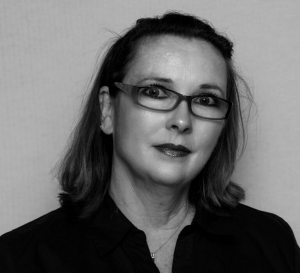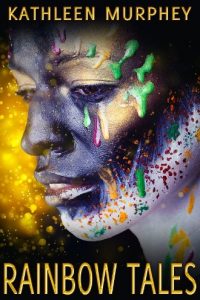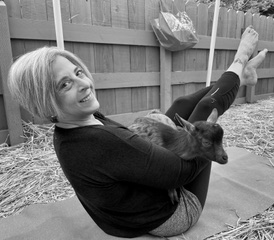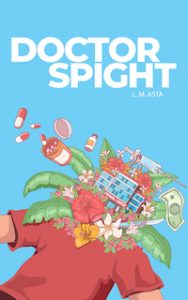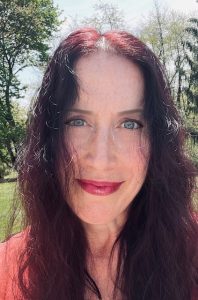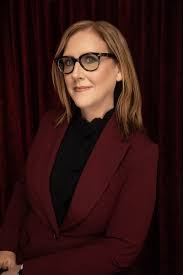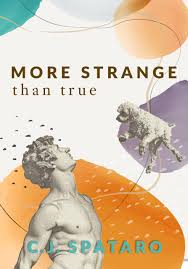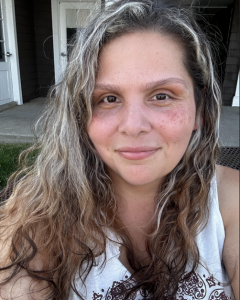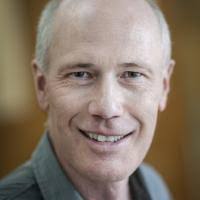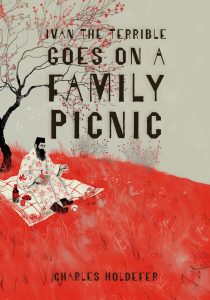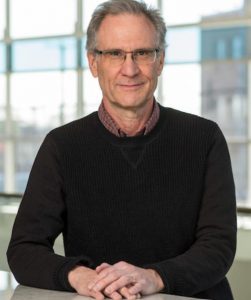
It’s while prepping my folks’ home for sale that I come across the old instrument, its case tucked edgewise in a box of blue and white plates. The box is maybe one of fifty, the remnants of my mother’s career, which are balanced in no discernible order on the exposed joists of their attic. Having put them off till the end, I bag what I think is trash, leaving the rest for the appraiser who will make the final calls. I’m moving fast. The attic’s naked insulation cups the dry heat close around me. Mainly, I just want to be done.
But I stop when I find the case.
Because forget her collecting, the frakturs, the blue and white plates, the old board games she bought and sold, it was violins, although she would never call them that, fiddles, fiddlers, that my mother measured against. There was nothing casual about it. At concerts, ensembles, recitals and showcases all over the city, at the Settlement School and the Kimmel Center, she judged, as a singer might, whose playing lacked breath and who sighed over every note, fingering the rare ones who got it just right. People wanted her opinion. When her brother, then the concertmaster of the San Francisco Symphony, came to town, all stopped so she could attend every performance; more so, if he were soloing which he occasionally did. She listened rigid, one hand clamped over her mouth to catch an unwanted discharge, anything which might knock him off his game. Understandable, I guess. Right after the war, my mother and her brother had been what, close to child prodigies, performing together and apart. Yet, despite all this, I never once heard her play.
So damn if I’m going to miss my chance now. I stash the case in my car, then open it. Inside, nestled in what once had been reddish plush, the instrument is nothing but a small handful. One string still taut over the bridge, the other three sag off the pegs, their ends curl from where they had been wound, while the tiny ebony rest, its chin depression hardly the size of a quarter, hangs askew. The case breathes a blown-instrument smell, almost like a sax or clarinet, of sour spit, damp reed and fossilized rubber. I reach to remove the fiddle and then stop. I wonder if the smell itself might trigger something in my mother, so I shut the lid, planning to bring it on my next visit.
And when I close it, I remember something. Once, dismissed early from school, I had heard violin through a forgotten cracked window. The music was nothing I knew, a high looping rise and then a descent, in tune yes, but the lift shallow, the release empty, played just to get to the end. My gym class had been bench-pressing back then, and unable to both exercise and breathe, I would finish each set, light-headed and gasping, barely able to reset the bar. That’s how she sounded, a held breath and then a discharge of relief. Over and over again.
Just hearing it was enough. Not the music, but the sad arc of her joyless practice. I was glad then that whatever had gotten my mother had not gotten hold of me.
#
One’s elder parents, this odd reversal, comes in spurts. I get on with things, our current pleasure, my wife’s and mine, is nurturing a rescue dog with a happy tail, and of course my patients, but then something takes me over. At the moment, it’s their house, the realtor wants it on the market next month, and my brother isn’t much help. Of course, the fiddle is my home-grown distraction, I could’ve ignored it but am visiting earlier than usual because I want to see my mother’s reaction. And yes, I have this fantasy. Something, the fiddle, anything, will wake her, allow me to move her out of this locked place.
I watch her, eating at a round table with three other women. Ammonia scrubbed with just the undertow of urine, still smoky from cooking, the room hollows out in their silence, except for my mother’s fork clinking against her plate. Her hand trembles, no that is too polite, it shakes. They had ruled out Parkinson’s so nothing’s left except the draining of memory. It is getting more pronounced each time I visit, a rhythmic reminder of her decline. One of the staff flips on a CD, seventies hits, loud in this soundless room. A woman at my mother’s table starts to sing along. The Bee Gees, I think it is. Now a man from the next table joins in. They all seem to know it, maybe they sing it here together. I look at my mother, the one-time fiddler. What will she make of the Bee Gees? She raises her head, but then it’s over. Lunch is done.
In her room, she crouches, knees up, on the edge of her bed, breaking off pieces of the dark Hersey’s almond bar I always bring. Before the disease, her face had been sharp, overtly attuned, so when I was a kid trying out the cello, her perfect pitch would radar in and ping back from across the house. “You’re flat,” she’d yell, which was always. Give me a starting point, and I could whistle an accurate scale, but picking a note out of the air on an un-fretted string, only she could do that. I blamed her musical omniscience on some physical twist, a knotting she must feel deep in her ears of a tone so close. I can still remember the grimace.
Now I consider her face from above, down across her forehead, over her eyes, and then across the bridge of her nose, her cheeks. A new pull of skin from her bone, a slumping. Seen this way, her features have grown increasingly broad, maybe more Asiatic if I can call it that, but I believe I can because it is who she and I really are. With her face less affixed, loose on her cheek, I can see the mixed heritage of our family, old Jews somewhere out there. My grandfather, coming from one of those now deleted villages east of the Carpathians, had the same broad, flattened features when he was tired, and so, I guess, did I after working long nights.
I slide my two hands underneath to bestow the fiddle. She looks. At first, nothing. She mouths the last bit of almond chocolate, then licks her fingers. Finally, she takes it from me, turns it over and shakes. Still nothing. No reaction at all. With the case on her lap, she begins to pick off the orange flakes.
“Remember?” I ask.
Her picking slows. She stares, then reaches. The silver clasps are rusty, their mounts misshapen with age. I bend to help her, but she bats away my hand. She, not me, will spring the case. Somehow, something rote kicks in, and she no longer fumbles. Once the case is unlatched, she hesitates, and I wonder if it will end there. Her hand, which had not been steady enough to hold her fork, stills, hovering above. Then she opens the lid, setting off the wind-instrument cloud, which dissipates quickly and is replaced by the dryness of rosin, the pickle smell of old varnish which must have grown gummy in the attic. She reaches and then stops. She looks up at me.
“It’s yours.”
She nods, then tries to lift it out neck first, but the sticky varnish glues the fiddle in place before it suddenly pops free, surprising her. Despite the child’s size, she uses both hands to bring it close to her face. Somehow the one taut string still holds the bridge in place. She pushes the right side of the instrument against her ear and taps the body, then explains, “Sound post.”
I have only a faint idea about a sound post in a violin, let alone how to listen for it, but she’s in charge now and I just watch. She lays the instrument in her lap and then slowly winds the peg while plucking the one sagging string. Its pitch tightens, raises, reaches something unmarked, but she seems to know, and then she stops.
Laying the fiddle carefully on the bed, she reaches into the case and pulls out the bow. Holding it up from the bottom, the horsehair that has worked loose flowers her hand. She looks as though she doesn’t know what to do, then brushes it. Brittle with age, the strands break off with a crack, until the wood of the bow and only a few hairs remain. When she tightens the screw, they grow taut.
#
“Good dream last night.” Mark, a former professor, historian, comes to me for what he calls this general retirement unease. A jean’s guy, short, but sturdy in the arms and chest, he sometimes reports a migraine aura and asks that I kill the glare from the overheads behind me. While he’s making the most of his retirement, writing a little, exercising, and learning blues guitar, he still complains of a queasiness he remembers from work, something like the migraine displacement, the blurring of a fast-turning background, and now he can’t accept that there is nothing more to do.
“A girl, junior high it could be,” he starts into his dream. “Nothing else I remember, except the pull. Didn’t get it exactly.”
From his gym-work I guess, he holds his back uncountably straight, more than I could ever do, as he perches forward on the sofa. “She sits in front of me wearing a sleeveless jersey tied up by a blue bow, I remember that distinctly because of how fragile it is, and I am looking.” He stops for a moment, then starts again. “Yes, at her shoulder, where her sleeve would be. I know I shouldn’t. Even in the dream, I know that. Still. I want her to raise her hand. Then she does. I can see, picture really, the first swelling of her breast. That is just enough. So far beyond me then and yet . . .”
And yet. . .so sweet. You can only imagine and with that, the intensity of pleasure that comes over you, but gossamer too, so quickly gone. And strangely I connect it to the fiddle, what was it, just three days ago.
My mother, who had known so much, forgot the scale.
When she had screwed up the bow, I suddenly feared she might sound like that time before, the held breathe, the joyless music, the gasp released at the end. Fearing that, I almost took it from her. But. . .
Squinting in concentration, she raised the instrument and skittered out a note on the one remaining string, her bow bouncing as she drew. Thin okay, but at least not that remembered pant. She lowered the bow, inspected it carefully, then raised it again and played a second note. One step higher, maybe the beginning of a scale, with more authority here, her bowing steadier now. Then she stopped. Her fingers still on the neck, her bow poised, she looked at me.
“. . . and yet?” I force myself back to my patient.
“I imagined, yes. What I could not see. But also, it reminded me how fresh it seemed. Everything. When I started out.”
“And?”
“Well, I lost that,” and he falls back as he often does, his doubts about retiring, “I left work in a bad place,” then a beat, a resignation that I let him work through, “but nothing I can do about that now, right?” and it runs out. “But okay, I did okay.” He’s still forward on the sofa. “Yup. I’m right here now.”
He is here, yes, just where I want him to be, but it is now me who drifts. My mother played those two notes, then stopped. She dropped her hands but balanced that tiny fiddle under her chin. Nothing.
Maybe I should’ve let it go, but no. “A half step,” I prompt, pushing her further up the scale.
But, “half step,” the words, they meant nothing to her.
So, I picked up from the last note she played and whistled. A half step. She paused, looking up at me, then a sudden smile, her joy in rediscovering it.
“Your guitar’s still going, right?” I ask him, out of nowhere, aware that it is me who’s starting to drift.
“Doesn’t matter how good or bad,” he says. “Just the pleasure you get.”
“Right.” Our mantra. Pleasure without judgement.
Forgetting the scale, but not the tactile touch on the fingerboard, the drawing of the bow, my mother played and then stopped until I whistled the next note. A full step I whistled, then another full step. Note by note, her attack grew more confident. We came near the top, a half step, the queasy note, just worried enough that it pushes you over the octave, the turning, and then back down. And her face, concentrated, pulled tighter, that she could do this. I whistled. She played. A strange duet.
“A scale can be beautiful, right?” I ask him, the past now lapping the present.
“Yup. Try to make them sing.”
“How so?”
“You want them to kind of rise. Then crest.”
Yes, yes, that’s what my mother had done. Pulled tight that scale, stretched out so it almost wouldn’t make it, then come full force as it turned over the top.
To illustrate, he hums, a few notes in sequence, not so on pitch, a flimsy scale, one of gaps. “Sweet pentatonics,” he sings.
Pentatonics. No. That’s not right. They are reduced scales, five notes instead of seven. Somehow that mattered. “Pentatonics? They’re thin right? They skip notes.”
“From what?”
My mother made it up and back over eight notes. No gaps. For some reason, that seems important. His scales are less notes, easier to play. “From the whole scale. The real scale.”
“Do, re, mi.”
“Yeah. Eight notes. The whole thing.”
“A name I call myself’?”
“Stop,” and then hear myself, the unexpected edge to my voice, “Your pentatonics. They’re cheating.”
For a moment I think he might stand, and he would be right to do so, but instead he smiles, then relaxes in a way I had not seen before. Letting go his straight back, he splays, loosely cocked, his shoulder slung over the sofa’s arm. He’s having fun. “That’s a strange comment. Especially from you who says just enjoy it, never think of good or bad.”
“I don’t mean that,” I fumble.
“You called it a cheat.”
“Hollow,” it just comes out. “You can fall through it.”
“What?”
“The gaps.” I had tried jazz sax once, another musical failure, played those five note scales. I can’t describe it, but they made me anxious. Holes where notes should be, a kind of emptiness. No knots to be untied. “Shapeless,” I say. “Can be played with anything.”
“Almost. That’s the fun.”
“But so baggy, loose, not perfect” and here I am, I had come full circle.
“Perfect,” he echoes. “Ah.”
Don’t expect perfection was what I had told him, just the pleasure you get. Right? Easy for me to say.
We are both silent.
I move in my chair, cross my legs. He does not.
I am usually so good at it, the waiting, letting my patient choose her moment. But now, agitated I lean forward. Wanting him to say something.
But he won’t. Instead, he just watches me.
The reversal feels new at first, then I remember it has happened before. Something takes me over, a sudden intensity, a need to assert, so strong that I break therapy. No that’s not all of it. My patient catches me up, calls me on it, or so I feel, no, am dead certain about. And then I stop, but too late. Years ago, maybe two or three other times, or four maybe, and I was sure I had grown out of it.
But that’s not the worst. After that, I can’t go back. I can’t forgive it. I never saw those patients again. My choice? Their choice? I don’t know. “It seemed so important. My mother played. . .” I stumble. “Eight notes.”
“Your mother?”
“I had never heard her play. And together. We did this scale. I. . .”
“Okay, okay,” he says. “The gaps. You might fall through. Now I see you a bit.” He is up, off the sofa. He is never the one who wants to leave. Grabbing his jacket. “Perfection.”
“Next week?” I yell, trying to catch him at the door.
#
I am good, I tell myself, no, more than that, I have helped many patients, this I know, but “perfect” is all I remember. Driving, I am further buzzed. I’m on my way to pick up my brother, Jonah, who begged a ride from the Manhattan train.
Jonah has lived for thirty years in the same rent-controlled studio apartment high on the west side near Columbia. He comes down infrequently and had been cool when I told him. It’s only a scale, he said, not a song. He knows nothing I tell him. But here he is, I hadn’t expected he would show up.
My mother hugs him but does not call him by name. Me either.
“Came down just to hear you play,” he tells her. Jonah is thin, almost undernourished, long hair over his eyes, unshaven, not stylishly so, wears creased cotton pants and a flannel shirt. Yet he is hearty in a way I am not, patting her back, elbowing over the encased fiddle so he can sit close to her, plopping half her Hersey’s into his mouth. He has always staged scenes like this, just for me. Seven years separate us, forty-nine to my fifty-six, and even in high school, he celebrated a comfort I never knew, friends always over, tucking their sneaks up on my mother’s collectable chairs which I thought would drive her crazy, but she loved it and knew them all by name. She’d chat, sports especially; after the fiddle, she had become a cheerleader. Jonah triggered a giddiness in her I never knew she had.
Despite his urging, my mother doesn’t reach for the case, but instead turns to me and says, “Lots of notes, I counted them. Thirty, forty thousand I think.” Her voice is different, girlish; not looking back, she is back, a teenager. “And I only got one wrong.”
That has always been the story. Sixteen, dragged by her father to perform at some high school auditorium, she played the slow movement of the Mendelssohn violin concerto. The impresario, her dad had organized a sort of grand tour, churches, small auditoriums, synagogues, during which he remained backstage supervising. Alone this time, not with her brother, she had played well. Story: she forgot a note, she forgot where she was, she could’ve found her way back but did not. Terrified, she ran off the stage, not to her father in the wings, but out into the audience. That was it. The reason I’d never, or at least officially, heard her play.
“Nick just kept playing,” she says.
But Nick is her brother. The story had always been that it was her alone. “Nick?”
“It was the Bach double, silly. Two violins. Thousands of notes.”
Hearty or not, Jonah’s patience is not my own. He pushes the fiddle case closer. “Come on, Mom. I came down,” but she makes no move to open it.
“Two violins,” she says again.
So, this image. Foundational to being a kid. The low high school stage, the light on my mother, alone, playing without music, fully exposed. Not true.
“Nick, did not. . .” she trails off.
“What?” I ask.
“. . .stop.”
I try to reimagine it. In pictures, Nick had looked about ten, in a sailor’s suit, whites with a blue bandana around his neck, right after the war, victory in the Pacific and all that. But sailor’s suit or not, he was not the one who stopped. And her father looked on from the wings. Such a good boy, the darling. Holding her fiddle down by her leg, she must’ve hated him. And he kept playing.
Alone.
Bach’s perfect counterpoint, the two fiddles talking to one another, gone. There must’ve been holes in the music. I flash briefly on the pentatonic scale. You could fall through. “Just one violin?” I ask. “What would it sound like?”
“No,” she says. “He played both parts.”
So back and forth he must’ve played, raising questions with his part, answering with hers. He was good enough. He could do this.
Fiddle at her side, she watched. But why? She knew the music by heart. She had only missed a note. Why didn’t she come back in?
“Then,” she says.
And then what?
“I knew.”
Through all their years of practice, their trolley trips for lessons downtown, sometimes three times a week, had she sensed he was pulling away?
Or maybe not. Could she have actually been better? But in that case, why? What’s next, maybe she asked herself. How many women fiddlers were there, back then, right after the war? Could she have feared her virtuosity, what she would have to give up.
“I would never. . .”
So maybe she had done it on purpose. Without thinking, just waiting for an opportunity like this. Maybe she looked up and saw her father in the wings. He pointed at her, insisting that she come back in, and that was enough. Disrupting everything, she left loudly through the audience. And Nick never stopped playing.
“You miss one note and it was not the same?” My brother asks. “Do you know how many mistakes I’ve made?”
If you’re not perfect, you couldn’t play at all, doesn’t he understand? That was it. The end. One mistake. Then, you back away. With all those patients, the mistakes I had made.
“Come on Mom,” Jonah says. “I want to hear you.” My brother has come all this way. “Play,” he says. He reaches for the case, fumbles with and then unsnaps the latches. He opens it.
The case is empty. There is no fiddle inside. I stand and look.
“Where Mom?” I ask as gently as I can.
“I gave it to someone,” she says. “What would I do with it?”
#
A quick spin in the parking lot, then a push, is it playful, and my brother pins me against the car. Thin as he is, he has leverage and seven years on me. Up close, he smells like algae, as though he had been swimming in a still pond and forgot to wash, which he might have done because, somehow, he had just rented a bungalow an hour upstate of New York. Maybe he’s doing better than I thought. “You know nothing,” he says. “Big brother.”
Thrown by the empty fiddle case, I have no answer. The weight of his body against mine, his bent elbow sharp in my back, his fishy smell, they are my only certainty.
“She had grown past the violin.” No “fiddle” for him. “You were at college. She got into collecting, antiques, selling, did pretty well at it.”
“It’s not something you grow past,” not willing to let it go. “Ever see her when her brother came to play?”
“She stopped going,” he says as he releases me. “At least not every time.”
And I consider the impossibility of this as I slide into the car.
Driving, I look over at him. Yeah, he’s a mess. And he stinks. But he won’t look back at me and for the first time I feel the absence of his acknowledgement.
“You shouldn’t have brought it,” he finally says, still looking out his window. “She wouldn’t remember.”
And maybe he is right. She has a choice of her memories; maybe without the fiddle, she is free. Or maybe it doesn’t matter you had missed a note . . .
#
I had spread out her collectables, the Pennsylvania Dutch frakturs, the heavy porcelain, the blue and white plates in the living room. Dusty, wrapped in newspaper, maybe the real relics of my mother’s life.
The rest of the house is empty. Tomorrow, it goes on the market.
Now the appraiser squats, picking through item by item. Unwrapping each, using the light on his phone to examine closer, he separates them into piles.
He comes from a good auction house, very selective in what they take. I wanted it to be the best because I had no idea. More than that, I really wanted to know. I realize I am holding my breath.
He examines a large serving plate with a magnifying glass. Blue and white, it is glazed with a hunting scene in the middle and decorative panels around the border. I didn’t know, but my brother had once explained. It’s called a charger. The appraiser unbends, shows me its edge.
“No chips,” he says. And he’s right. The glaze continues undamaged around the rim.
He hands it to me. I’m struck by how heavy it is. I remember holding the violin, how long ago was that, now the charger.
“Turn it over.”
There is nothing on the bottom. Is that a problem?
“Early Chinese export. No mark means it’s old. Later stuff, they were required to mark. Very high quality.”
I had seen that charger, the one I held, displayed on the mantle whenever I visited. Before this, I never knew. I’m surprised by what a relief it is.
“Yeah, really good.” He picks up a bowl, turns it over, also no mark. “Ten years ago, it would’ve fetched a fortune.”
He stops.
“But the market has changed. It always changes. No one is buying this anymore.”
And he writes a figure on his pad. I put down the plate, the charger, to look. The number is low. Could I do better? Maybe. But I know nothing.
#
In the dining room, the clink of my mother’s fork has gotten louder. Her father, who had not talked to her for a year after she’d run off stage, later came to dinner every week, bringing fresh blue fish from the shore. Her brother died years ago. She is in a memory care unit, I brought her a fiddle, and it didn’t mean anything. Probably, it was a mistake. In my pocket, I have a check from the appraiser.
Again, someone puts on the CD. The same song, Bee Gees I’m certain about it now. Someone starts to sing. Someone else.
She raises her head, puts down the fork. Her voice is thin, tired, watery. But she is not humming. Not whistling. She knows the words. “We belong to you and me,” she sings. The music takes her over and she sways with the ballad. I would never have guessed. And, of course, unlike anyone else, she is spot on in tune.
#
My office is stilled, a muffled kind of quiet, dampened chair squeaks, papers shuffling, although maybe I am more aware of the silence this afternoon. I had left the time open. For two, three weeks. Finishing up my notes from the morning, I keep glancing over at the empty sofa. I had thought of calling him.
I think also of my brother. He was right about my mother, and he wasn’t. She became a collector, a dealer. Based on the appraiser, she had done all right with it, better than all right. Jonah saw it, it was me who did not.
Still, collect frakturs, chargers, old board games, all you want, but to never again play the fiddle, that was a lot to give up. Maybe pick it up once or twice. Just for fun. A few evenings after a martini. Some chamber music in the living room. But I’m not even asking for that much. Could she have played it for me? That would have meant something.
If it is not perfect, it is not worth doing. Maybe. But I bet she made some mistakes with that damn pottery, misread a glazer’s mark or two, dropped one of those chargers, got taken here or there.
And so had I. . .been tired a few times. . .off my game. . .been stupid. . .
The session time is up. No professor. It’s not going to happen. Next week, I’ll schedule his slot for someone else.
I turn from my desk. And as I do, I change my mind. This time it won’t be me who walks away. I want him to know. I want to know.
I dig out his number, get his machine. I start to leave a message, then change my mind.
Hanging up, I open my computer. Somewhere I have an app which gives me a musical note. An ‘A’, very simple, a starting point.
I call again. I don’t speak. I whistle into the phone.
A normal scale until I hit the first gap. The missing ‘D,’ a half step, where the first knot should be. Instead, I jump right over it, whistle the next note, an ‘E.’ Easier to hear, got to admit. That sweet pentatonic. Not perfect maybe, but. . .back to the regular scale for a note or two until the last gap. A big one. No ‘G’ sharp, the leading tone that my mother played, the worried note, the push forward. Gone. Nothing there. I could fall through, but I don’t. Instead, I hop right back to the beginning. Casual isn’t it, without those twists in the ear, those knots to be untied. Maybe, but also a lot of room. Play around, try a few things, whoops, that’s not what I’m after, screwed it up actually, but so what, get it next time. Five notes I whistle on the phone. That’s my message.
Then I close the phone and turn back to my empty office.
Jeff Rush recently retired as a Professor Emeritus from the Department of Film and Media Arts at Temple University where he taught Screenwriting and Directing.
